AIRPORT PROFILE
Covid-19:
how are London’s airports weathering the storm?
In the UK, the Covid-19 pandemic has impacted all industries but aviation has been hit particularly hard. With airports all around the country witnessing huge economic losses, how are the capital’s six airports coping? Ilaria Grasso Macola finds out.
Despite London doing slightly better in terms of infection rates compared with the rest of England, the Covid-19 pandemic has had a significant impact on the capital’s socio-economic fabric.
According to data from the Greater London Authority, the number of Londoners claiming Universal Credit rose from 200,000 to 890,000 between January and July. A report by housing association Peabody has also highlighted that unemployment rates are higher in London than elsewhere, with household incomes set to fall.
The pandemic also dealt a huge blow to mobility in certain airports. A study by King’s College London showed that London’s three major airports suffered a substantial drop in flight volumes, with Heathrow dropping from 350 flights a day to around 80 in May.
With the possibility of future lockdowns looming over the industry, here’s a look at what London’s six airports are doing to weather the Covid-19 storm.
Image:
London City Airport: development plans halted as spending slashed
With several job cuts across the organisation, London City Airport has been one of the airports to be hit the hardest by the Covid-19 pandemic.
On 14 September, the airport announced a series of restructuring plans to limit losses in the face of the crisis. Having already slashed all non-essential spending, the airport’s management was forced to open consultations with its staff to explore ways for cutting costs.
Voluntary redundancy and the loss of up to 239 jobs were among the options explored.
“The aviation sector is in the throes of the biggest downturn it has ever experienced as a result of the pandemic,” says City CEO Robert Sinclair. “We have held off looking at job losses for as long as possible, but sadly we are not immune from the devastating impact of this virus.”
A month before this announcement, London City had already decided to halt its £500m development plans, which included a new terminal extension as well as a new east pier.
“Completing the terminal extension and new east pier very much remains part of our future, and, with the foundations for both in place, we stand ready to take those projects forward when demand returns,” Sinclair had said in August.
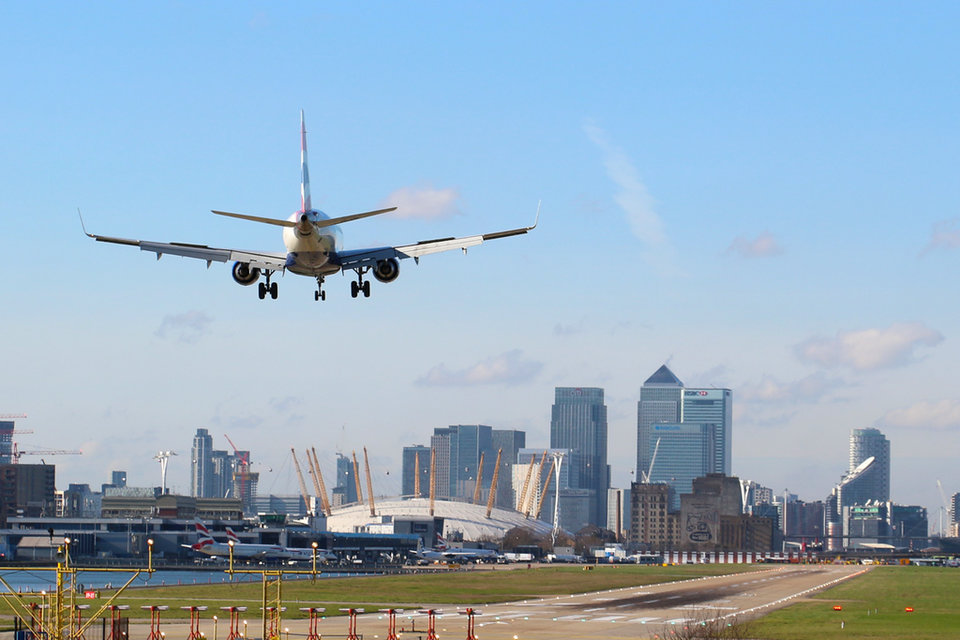
Image: Travers Lewis / Shutterstock.com
Gatwick Airport: betting on technology as restructuring hits jobs
To better protect both passengers and staff, Gatwick Airport was the first UK airport to introduce a UV disinfection system for its security trays. The system - which features trays passing through a UV-tunnel underneath the hand luggage screening systems - has a 99.9% disinfection rate.
To be rolled out on eight lanes in the airport’s north terminal by the end of the month, the system will significantly reduce the risk of Covid-19 and other coronaviruses spreading.
“This new system has proven itself to be extremely reliable and provides a really high degree of reassurance as every single passenger and staff member using the system will have a tray that has only just been disinfected,” said Gatwick COO Adrian Witherow in a statement.
Enhancing safety is not the only measure Gatwick had to take in the face of the pandemic. With numbers down by 80% compared to 2019, the airport was forced at the end of August to announce restructuring plans, which could result in 600 jobs cuts across the business.
“If anyone is in any doubt about the devastating impact Covid-19 has had on the aviation and travel industry then today’s news we have shared with our staff, regarding the proposed job losses, is a stark reminder,” added Gatwick COO Stewart Wingate.
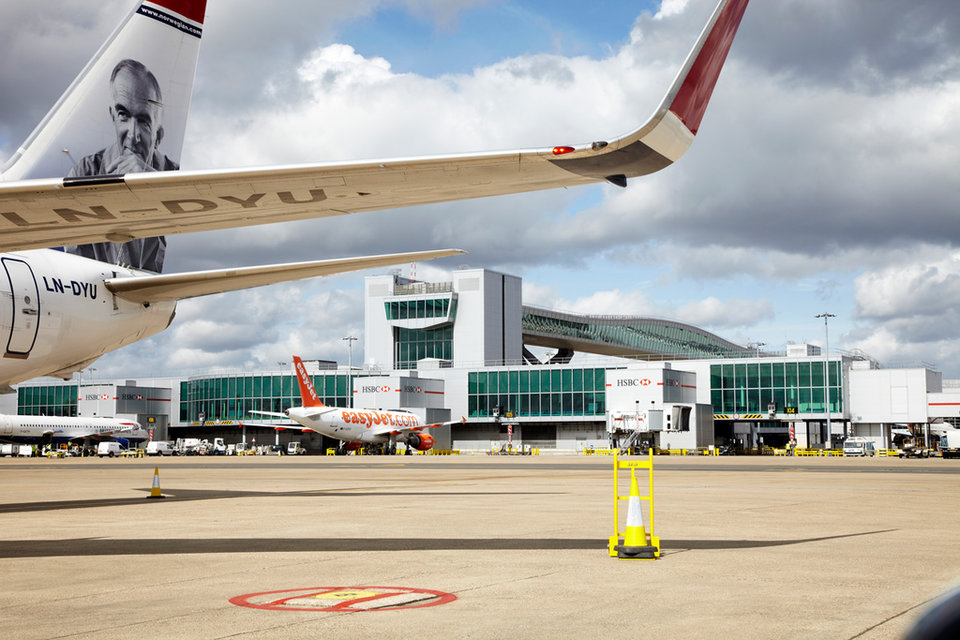
Image: Gatwick Airport
Heathrow Airport: stark warnings that quarantine is strangling the economy
“Heathrow’s traffic figures for August demonstrate the extent to which quarantine is strangling the economy, cutting British businesses off from their international markets and blocking international students, tourists and investors from coming here to spend money.”
With these words, Heathrow chief executive John Holland-Kaye described how much Covid-19 travel restrictions are impacting not only the airport but also the country’s economy.
The airport has suffered substantial losses, including an 81.5% decrease in passenger demand and a 34.2% drop in cargo volumes. Despite the airport’s implementation of health and safety measures – including the use of UV cleaning robots and the trialling of testing solutions – other airports in Europe, such as Frankfurt, are overtaking it in terms of traffic.
“The government has announced it is looking at the options for reducing quarantine for passengers who test negative for Covid-19, but ministers urgently need to turn words into action,” Holland-Kaye added. “Every day of further government delay costs British jobs and livelihoods.”
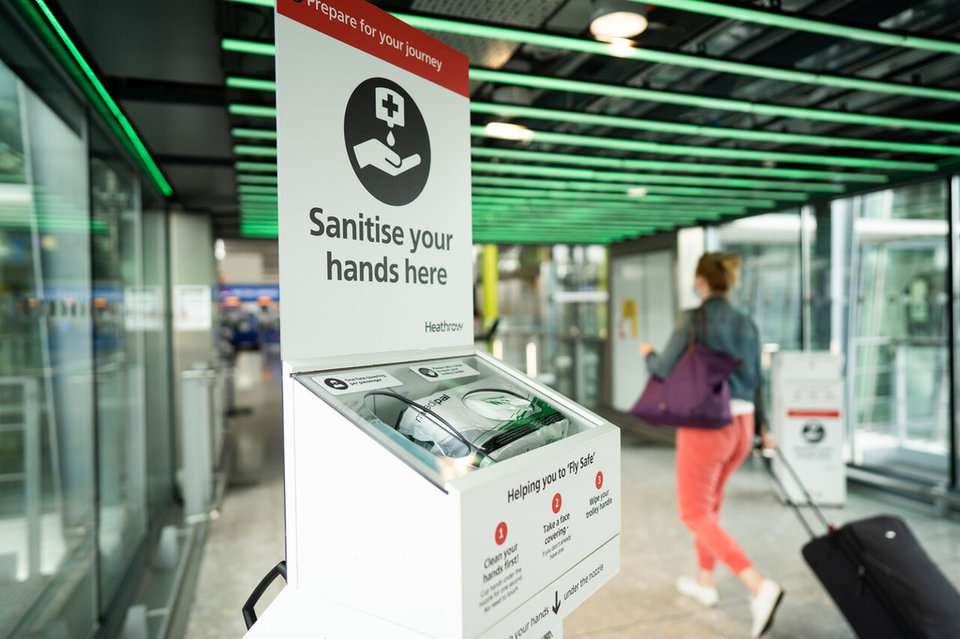
Image: Heathrow Airports Limited
Luton Airport: first in the UK to be ACI health accredited
Because of the Covid-19 pandemic, Luton has experienced a substantial decrease in passenger numbers, registering 56% fewer passengers in August compared to the previous year.
To attract travellers back to flying, the airport is implementing a series of health and safety-related measures, including receiving the certification from the Airports Council International’s (ACI) health accreditation programme.
At the end of August, Luton was the first airport in the UK and one of the first in the world to receive the ACI accreditation, which aims to provide an assessment on how well airports’ health measures align with the industry’s global standards.
These measures include enhanced cleaning and disinfection of terminals, installation of hand sanitiser units, autonomous cleaning robots and the use of protective screens in customer service points.
“This accreditation provides peace of mind to our staff and the passengers who choose to fly with us,” commented Luton CEO Alberto Martin.
Whilst continuing to deal with repercussions from the pandemic, Luton is also looking ahead to a post-Covid-19 future.
“As we rebuild, we want to increase the benefits we bring to passengers and the local economy, whilst also adapting to new expectations – not just in terms of Covid-19, but also in terms of sustainability,” explains a Luton spokesperson. “This is why we have developed our Responsible Business Plan, which will ensure we are transparent and accountable for our progress in that area.”
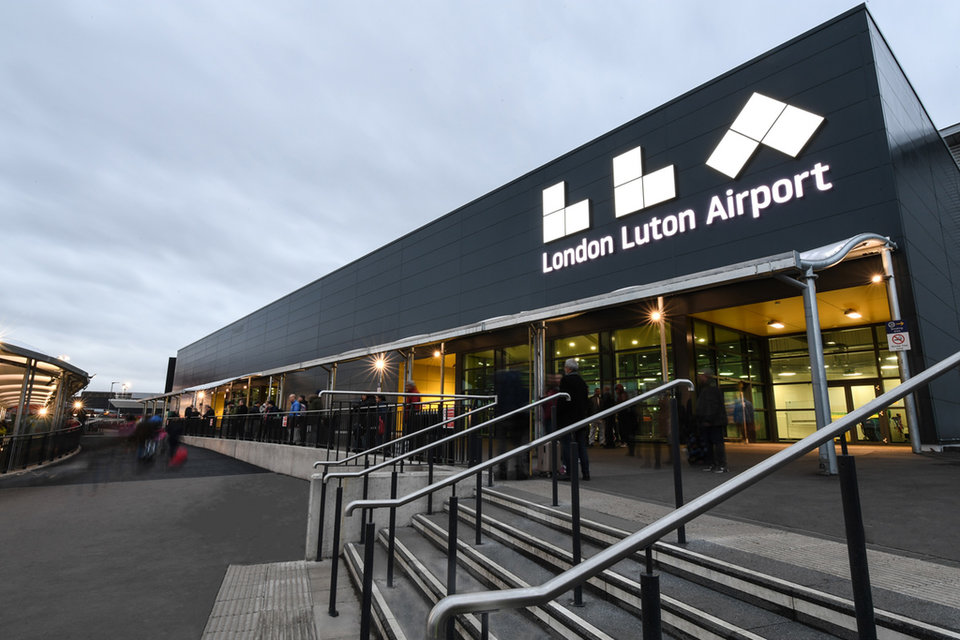
Image: London Luton Airport
London Southend Airport: a plea for Government consistency
Drawing on the lessons learnt in the past seven months, London Southend Airport has said it will do whatever is necessary to support both passengers and staff, but still expects a drop in numbers during the winter.
“We are working to support safe passenger operations at our airport, through investments including hand sanitiser every 20 paces, bio shields at all face to face locations, clear signage throughout the passenger journey and new security equipment which reduces contact points,” says the airport’s CEO Glyn Jones. “We have also maintained our cargo operations, which continue to safeguard supply chains and local employment.”
What is needed, explains Jones, is for the government to actively support the industry, with clear guidance and effective testing.
“That means, as a starting point, consistency in messaging and a commitment to testing to establish confidence and remove the widespread confusion that derives from the current approach to quarantine,” he adds. “Without such support, an industry which was, until recently, responsible for employing almost one million people in the UK will be fighting for survival with one arm tied behind its back.”
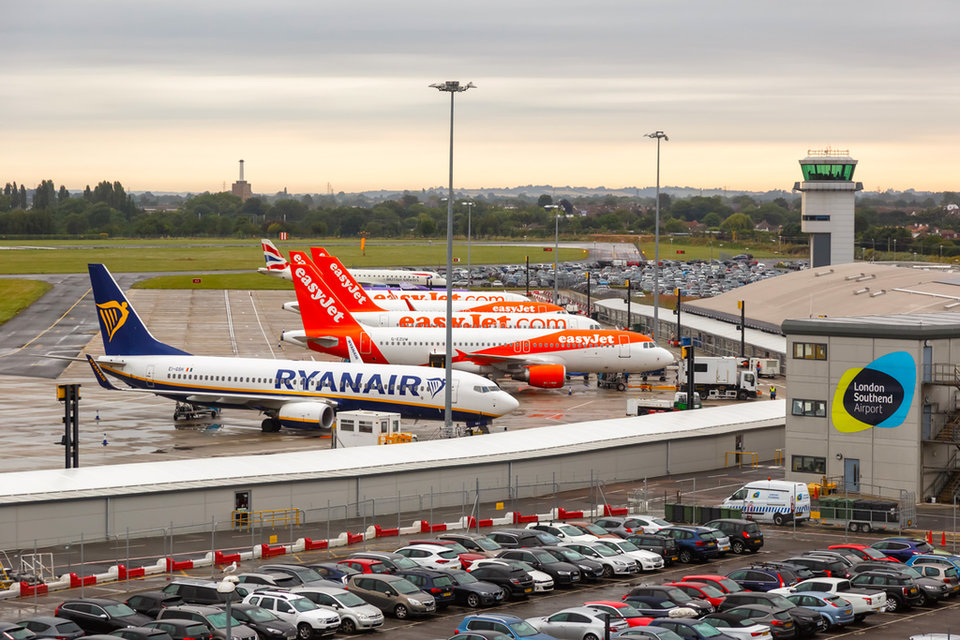
Image: Markus Mainka / Shutterstock.com
London Stansted Airport: freight growth gives hope
While passenger numbers dropped, Stansted registered growth in air cargo, with a registered increase in volumes of 43.6% and 25% during the months of June and July respectively.
These figures highlight the importance of airports not only for travellers but also for the wider economy.
“Stansted is generally thought of as somewhere to start your holiday or perhaps a business trip to an ever-growing number of destinations across the globe,” said Essex Chambers of Commerce chief executive Denise Rossiter. “These figures show its importance for exporters and importers too and how it is increasingly a major contributor to not just the Essex economy but that of the UK generally and why it is so important to businesses in Essex.”
Despite the increase in cargo operations, Stansted Airport, like many others around the country, is asking the UK Government for support packages for airports, though so far (at the time of writing) to no avail.
“Indeed, throughout the pandemic, there has been no evidence of any recognition from the government of the need to protect the travel industry and enable it to recover from what is undoubtedly the biggest crisis it has ever faced,” wrote Stansted’s parent company MAG chief executive Charlie Cornish at the end of August.
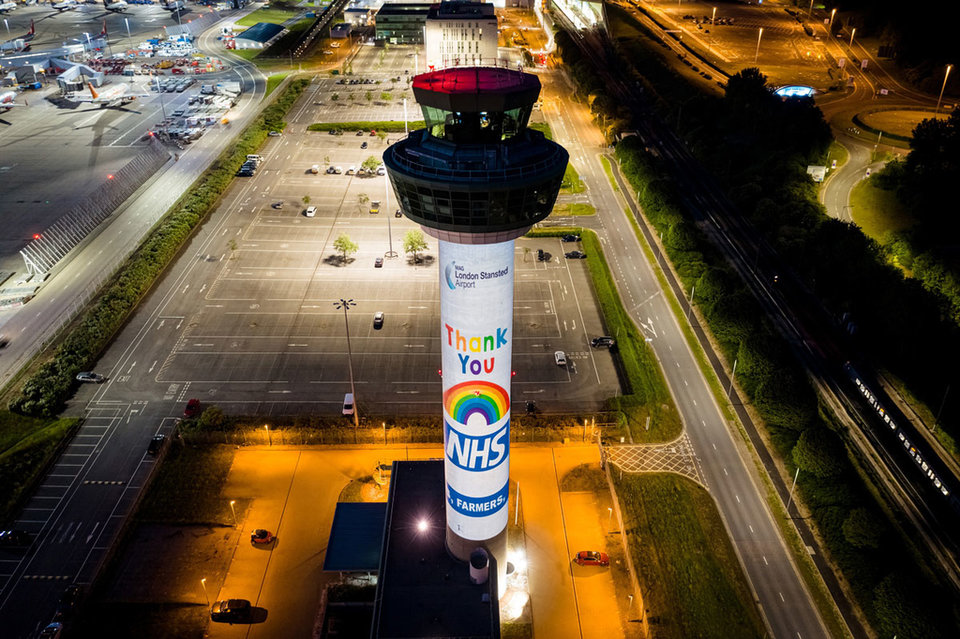
Image: London Stansted
London City Airport: development plans halted as spending slashed
With several job cuts across the organisation, London City Airport has been one of the airports to be hit the hardest by the Covid-19 pandemic.
On 14 September, the airport announced a series of restructuring plans to limit losses in the face of the crisis. Having already slashed all non-essential spending, the airport’s management was forced to open consultations with its staff to explore ways for cutting costs.
Voluntary redundancy and the loss of up to 239 jobs were among the options explored.
“The aviation sector is in the throes of the biggest downturn it has ever experienced as a result of the pandemic,” says City CEO Robert Sinclair. “We have held off looking at job losses for as long as possible, but sadly we are not immune from the devastating impact of this virus.”
A month before this announcement, London City had already decided to halt its £500m development plans, which included a new terminal extension as well as a new east pier.
“Completing the terminal extension and new east pier very much remains part of our future, and, with the foundations for both in place, we stand ready to take those projects forward when demand returns,” Sinclair had said in August.

Image: Travers Lewis / Shutterstock.com
Gatwick Airport: betting on technology as restructuring hits jobs
To better protect both passengers and staff, Gatwick Airport was the first UK airport to introduce a UV disinfection system for its security trays. The system - which features trays passing through a UV-tunnel underneath the hand luggage screening systems - has a 99.9% disinfection rate.
To be rolled out on eight lanes in the airport’s north terminal by the end of the month, the system will significantly reduce the risk of Covid-19 and other coronaviruses spreading.
“This new system has proven itself to be extremely reliable and provides a really high degree of reassurance as every single passenger and staff member using the system will have a tray that has only just been disinfected,” said Gatwick COO Adrian Witherow in a statement.
Enhancing safety is not the only measure Gatwick had to take in the face of the pandemic. With numbers down by 80% compared to 2019, the airport was forced at the end of August to announce restructuring plans, which could result in 600 jobs cuts across the business.
“If anyone is in any doubt about the devastating impact Covid-19 has had on the aviation and travel industry then today’s news we have shared with our staff, regarding the proposed job losses, is a stark reminder,” added Gatwick COO Stewart Wingate.

Image: Gatwick Airport
Heathrow Airport: stark warnings that quarantine is strangling the economy
“Heathrow’s traffic figures for August demonstrate the extent to which quarantine is strangling the economy, cutting British businesses off from their international markets and blocking international students, tourists and investors from coming here to spend money.”
With these words in a September press statement, Heathrow chief executive John Holland-Kaye described how much Covid-19 travel restrictions are impacting not only the airport but also the country’s economy.
The airport has suffered substantial losses, including an 81.5% decrease in passenger demand and a 34.2% drop in cargo volumes. Despite the airport’s implementation of health and safety measures – including the use of UV cleaning robots and the trialling of testing solutions – other airports in Europe, such as Frankfurt, are overtaking it in terms of traffic.
“The government has announced it is looking at the options for reducing quarantine for passengers who test negative for Covid-19, but ministers urgently need to turn words into action,” Holland-Kaye added. “Every day of further government delay costs British jobs and livelihoods.”

Image: Heathrow Airports Limited
Luton Airport: first in the UK to be ACI health accredited
Because of the Covid-19 pandemic, Luton has experienced a substantial decrease in passenger numbers, registering 56% fewer passengers in August compared to the previous year.
To attract travellers back to flying, the airport is implementing a series of health and safety-related measures, including receiving the certification from the Airports Council International’s (ACI) health accreditation programme.
At the end of August, Luton was the first airport in the UK and one of the first in the world to receive the ACI accreditation, which aims to provide an assessment on how well airports’ health measures align with the industry’s global standards.
These measures include enhanced cleaning and disinfection of terminals, installation of hand sanitiser units, autonomous cleaning robots and the use of protective screens in customer service points.
“This accreditation provides peace of mind to our staff and the passengers who choose to fly with us,” commented Luton CEO Alberto Martin.
Whilst continuing to deal with repercussions from the pandemic, Luton is also looking ahead to a post-Covid-19 future.
“As we rebuild, we want to increase the benefits we bring to passengers and the local economy, whilst also adapting to new expectations – not just in terms of Covid-19, but also in terms of sustainability,” explains a Luton spokesperson. “This is why we have developed our Responsible Business Plan, which will ensure we are transparent and accountable for our progress in that area.”

Image: London Luton Airport
London Southend Airport: a plea for Government consistency
Drawing on the lessons learnt in the past seven months, London Southend Airport has said it will do whatever is necessary to support both passengers and staff, but still expects a drop in numbers during the winter.
“We are working to support safe passenger operations at our airport, through investments including hand sanitiser every 20 paces, bio shields at all face to face locations, clear signage throughout the passenger journey and new security equipment which reduces contact points,” says the airport’s CEO Glyn Jones. “We have also maintained our cargo operations, which continue to safeguard supply chains and local employment.”
What is needed, explains Jones, is for the government to actively support the industry, with clear guidance and effective testing.
“That means, as a starting point, consistency in messaging and a commitment to testing to establish confidence and remove the widespread confusion that derives from the current approach to quarantine,” he adds. “Without such support, an industry which was, until recently, responsible for employing almost one million people in the UK will be fighting for survival with one arm tied behind its back.”

Image: Markus Mainka / Shutterstock.com
London Stansted Airport: freight growth gives hope
While passenger numbers dropped, Stansted registered growth in air cargo, with a registered increase in volumes of 43.6% and 25% during the months of June and July respectively.
These figures highlight the importance of airports not only for travellers but also for the wider economy.
“Stansted is generally thought of as somewhere to start your holiday or perhaps a business trip to an ever-growing number of destinations across the globe,” said Essex Chambers of Commerce chief executive Denise Rossiter. “These figures show its importance for exporters and importers too and how it is increasingly a major contributor to not just the Essex economy but that of the UK generally and why it is so important to businesses in Essex.”
Despite the increase in cargo operations, Stansted Airport, like many others around the country, is asking the UK Government for support packages for airports, though so far (at the time of writing) to no avail.
“Indeed, throughout the pandemic, there has been no evidence of any recognition from the government of the need to protect the travel industry and enable it to recover from what is undoubtedly the biggest crisis it has ever faced,” wrote Stansted’s parent company MAG chief executive Charlie Cornish at the end of August.

Image: London Stansted